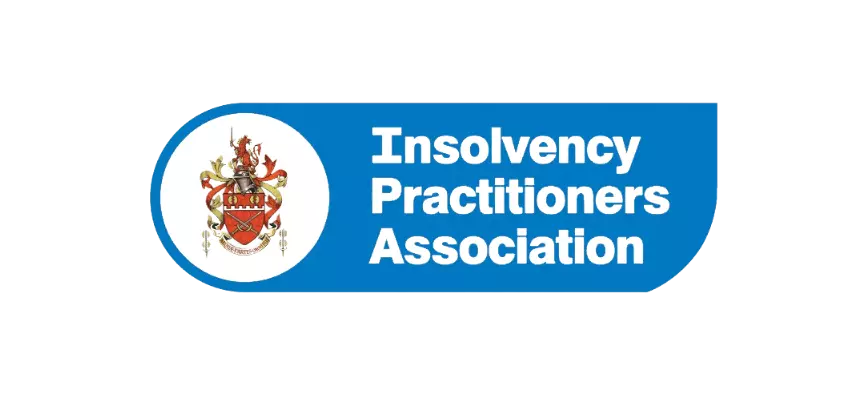If you have been researching or discussing the option of an individual voluntary arrangement (IVA), then you have probably come across the term insolvency practitioner (IP).
But what is an insolvency practitioner, and what are their duties if you decide to enter an IVA?
In this article, we cover everything you need to know about an insolvency practitioner’s roles and responsibilities.
What is an Insolvency Practitioner?
An insolvency practitioner is a licensed professional who can advise, set up and supervise formal insolvency solutions such as individual voluntary arrangements (IVA).
They are regulated and licensed by professional bodies such as the Insolvency Practitioners Association (IPA) and the Institute of Chartered Accountants in England and Wales (ICAEW).
The role of an Insolvency Practitioner
The role of an insolvency practitioner is to provide advice and guidance on insolvency solutions and administer plans to those who are struggling with their debts. They also must ensure that any insolvency solution is carried out in a fair and transparent way.
Insolvency Advice
Firstly licensed insolvency practitioners are responsible for providing insolvency advice to people who are facing financial difficulties.
When you are considering insolvency solutions such as IVA, your insolvency practitioner will be able to give you impartial advice on whether this is the right solution for you and your circumstances.
This includes assessing your financial situation, the people you owe money to and your ability to make monthly payments.
Your insolvency practitioner will also be able to give you information on the different types of insolvency solutions available to you and help you compare the pros and cons of each option.
Administration of an IVA
After initial advice and assessments, both parties might have agreed that an insolvency option such as an IVA is the best course of action for your financial problems.
If this is the case, then a licensed insolvency practitioner will be able to help you through the application process.
This involves putting together an IVA proposal to your creditors, where your IP will disclose your current situation and explain why you need financial support.
If the people you owe money to agree to the terms of the IVA during the creditors meeting, then the insolvency practitioner will be appointed as the supervisor of the arrangement.
Supervising an IVA
As supervisor, the insolvency practitioner is responsible for making sure that the terms of the IVA are adhered to.
This includes items such as making sure that you make the agreed monthly repayments and do not take on any new debt during the term of the arrangement.
Insolvency practitioners are also responsible for distributing your repayments to your creditors in a fair and timely manner.
If you have any problems or queries during your IVA, then your first port of call should be your insolvency practitioner and discuss your options.
What should I look for in my insolvency practitioner?
As with any industry, there are certain characteristics that can make a good insolvency practitioner (IP).
Make sure they are fully licensed
Not just anyone can act as your insolvency practitioner.
They must be licensed and regulated by a professional body in order to provide insolvency advice and administer formal insolvency solutions.
The two main professional bodies in the UK are the Insolvency Practitioners Association (IPA) and the Institute of Chartered Accountants in England and Wales (ICAEW).
Both bodies provide qualified insolvency practitioners with a licence number that can prove their accreditations, and gaining these credentials would mean having passed exams from the joint insolvency examination board (JIEB).
If you are unsure of an insolvency practitioner’s credentials when seeking advice, ask them to provide their licence number. If they cannot provide this, then it is likely they are not qualified to give you the professional advice you need.
Look for experience and expertise
When you are seeking insolvency advice, it is important to use experienced insolvency practitioners who know the ins and outs of the different types of insolvency solutions available.
This means they would have come across many different customer scenarios and understood the best way to deal with each of these cases.
They should also have a good working knowledge of the legislation surrounding these options, as this can change regularly.
Experienced insolvency practitioners also build up good working relationships with different creditors, which can come in handy if you need to restructure your repayments or come to some other kind of agreement such as obtaining a mortgage whilst on an IVA.
You can ask an insolvency practitioner about their experience by enquiring about the number of cases they supervise and how long they have been working in the industry.
Check reviews and testimonials
As is the case with any industry or service, a clear indicator of the service you will receive can be found in reviews and testimonials.
When you are looking for a licensed insolvency practitioner to help with your financial problems, check out different review websites and see what others have had to say about their experiences.
Some things you might want to look out for include;
- How quickly they responded to customer queries
- How easy they were to communicate with
- Whether they provided clear and concise information
- Whether they helped the customer to understand their options
- The speed of the application process
The final decision on which insolvency practitioner to use is of course up to you.
However, by following these tips you can be sure that you are getting the best possible advice and services for your needs.
How much does an Insolvency Practitioner cost?
In personal insolvency cases, such as bankruptcy or an IVA, you will not have to pay the insolvency practice directly.
Instead, their fees will be included in your monthly repayments to creditors which means you do not pay any additional costs.
Essentially, you could argue this means the creditors are paying for your formal insolvency process.
Do I have to meet my insolvency practitioner?
You do not need to meet your insolvency practitioner unless it is your preference to do so.
The whole IVA application process can be done over the phone or online, so you do not need to take time out of your day to visit their office.
Speak to our licensed insolvency practitioners
At PennyPlan, our licensed insolvency practitioners are here to help you understand the options available to you in resolving your financial troubles.
Our friendly team and licensed insolvency practitioners can offer immediate advice surrounding personal debts and give you the knowledge to take the best course of action.
We don’t only provide debt advice, we specialise in arranging and managing individual voluntary arrangements on our customer’s behalf.
We are members of recognised professional bodies, and we’ll help guide you through the full process to financial freedom.
Money and mental wellbeing
And we’re not just about handling your creditors too. We understand just how stressful and problematic money troubles can impact the other aspects of your life.
So as part of a full resolution to your financial distress, we provide access to our well-being team for support on matters that might be affecting you.
The financial well-being team provides confidential advice and support for the personal issues that occur because of debt.
Whether that be relationships, alcohol and drug issues or depression, they can all be secondary problems that have been caused because of the pressures surrounding your finances.
We understand how difficult it can be to ask for help when you are struggling with money, but we want you to know that we are with you every step of the way.
PennyPlan Insolvency Service
If you feel our services are needed by you or someone you know, then please fill in the contact form and our friendly team will be in touch.
Our confidential advice will get you back on the right track in no time.







